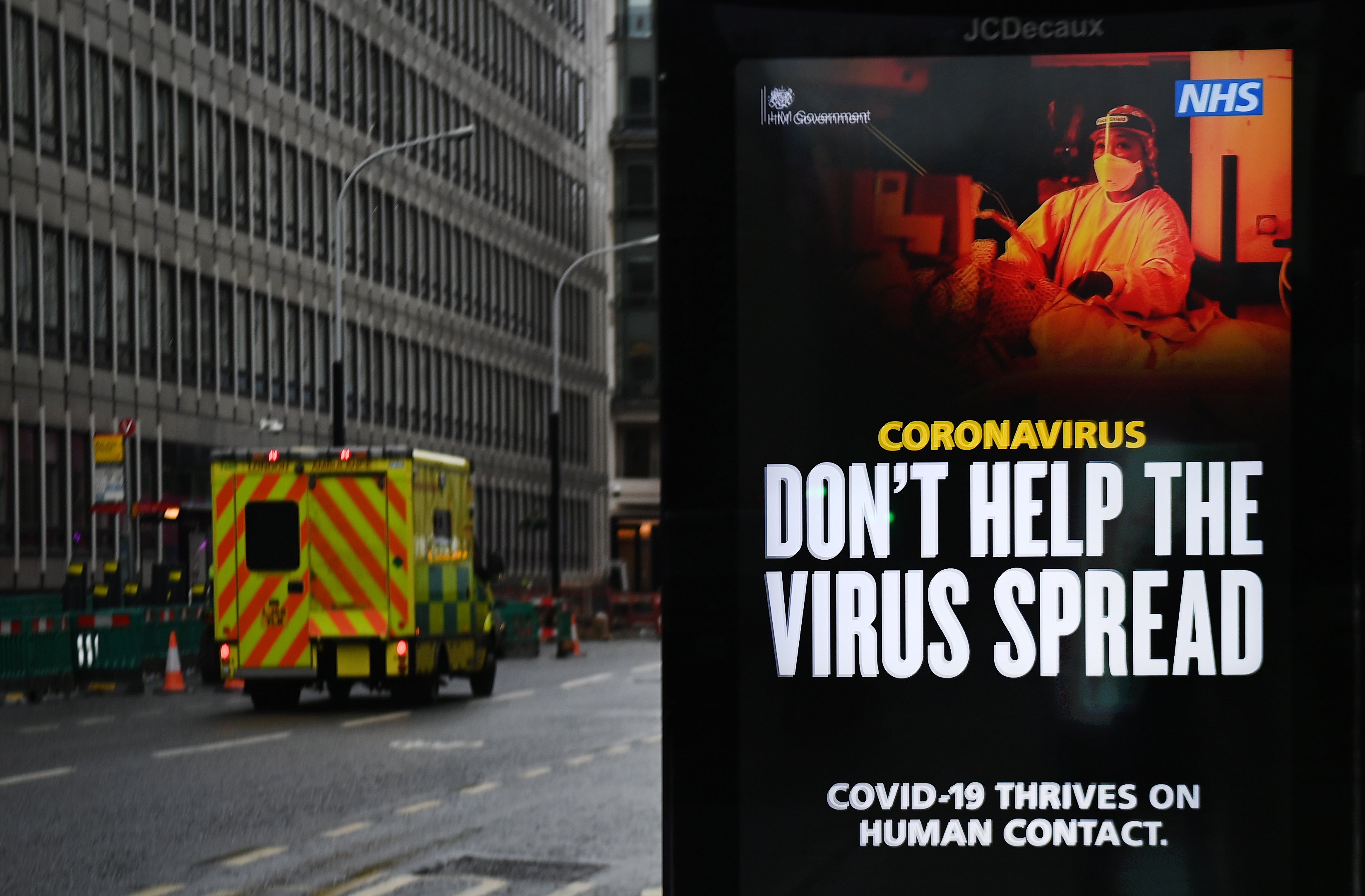Blood oxygen devices potentially giving ‘seriously misleading’ results to Black people, experts warn
Factor may contribute to increased Covid-19 mortality rates of ethnic minority patients, researchers say

Your support helps us to tell the story
From reproductive rights to climate change to Big Tech, The Independent is on the ground when the story is developing. Whether it's investigating the financials of Elon Musk's pro-Trump PAC or producing our latest documentary, 'The A Word', which shines a light on the American women fighting for reproductive rights, we know how important it is to parse out the facts from the messaging.
At such a critical moment in US history, we need reporters on the ground. Your donation allows us to keep sending journalists to speak to both sides of the story.
The Independent is trusted by Americans across the entire political spectrum. And unlike many other quality news outlets, we choose not to lock Americans out of our reporting and analysis with paywalls. We believe quality journalism should be available to everyone, paid for by those who can afford it.
Your support makes all the difference.Devices which measure blood oxygen levels could be giving “seriously misleading” results for Black and minority ethnic people, possibly contributing to increased Covid-19 mortality, experts have warned.
Pulse oximeters attach a clip-like device to a person’s finger, toe or earlobe and send a beam of infrared light to measure oxygen levels in the blood.
The resulting reading can be used to monitor oxygen levels of people with a variety of conditions, including by people at home with coronavirus, and to assess patients in hospital.
At the moment, coronavirus patients who call an ambulance but are not yet deemed sick enough to go to hospital are being given new home oxygen monitoring kits to help spot those who may deteriorate earlier, and over 300,000 oximeters have been sent out by NHS England.
Read more:
But a new paper cites a “growing body of evidence” that pulse oximetry is less accurate in darker skinned patients.
This could be contributing to health inequalities such as the increased Covid-19 mortality rates of ethnic minority patients, according to a review conducted for the NHS Race and Health Observatory.
It is now calling for the Medicines and Healthcare products Regulatory Agency (MHRA) to urgently review pulse oximetry products for ethnic minority people used in hospitals and by the wider public.
The review, by Olamide Dada, from Cardiff University School of Medicine, cites evidence from more than three decades of inaccurate and ambiguous readings for those with darker pigmentation and skin tones.
Dr Habib Naqvi, director of the NHS Race and Health Observatory, said: “At this pivotal time, we cannot afford to overlook this rapid review and the recommendations for action which can prevent late hospital admissions and help improve the health of black and minority ethnic people at risk or recovering from Covid-19.
“This review has stressed the need to ensure healthcare equipment and devices are culturally competent and sensitive, whilst not contributing to the array of current and historic health inequalities.”
A study in 1990 found that inaccurate pulse oximetry readings were more than two times more common in black patients than white patients.
Further trials found overestimated SpO2, or oxygen saturation, levels in dark-skinned individuals with low blood oxygen levels.
And a 2020 Michigan University study found pulse oximeter readings of blood oxygen levels were three times more likely to be inaccurate among African-American patients.
The new review says that: “Given the increased mortality amongst ethnic minority patients during the Covid-19 pandemic, it is possible that the differential accuracy of pulse oximetry is a contributing factor to this health inequality.”
Serious clinical implications of inaccurate readings could include delays in people seeking medical care, or inadequate oxygen being provided to patients, it warns.
And it could result in intensive care patients with coronavirus receiving premature “step-down” treatment.
Currently, Black people are almost twice as likely to die from Covid-19 than white people, with men of Pakistani, Bangladeshi and Indian heritage facing a higher risk of death involving the disease than their white counterparts.
The Royal Pharmaceutical Society’s director for England Ravi Sharma said: “This review exposes an area of health inequality where one treatment may yield more effective results for one group of patients over another, this is not acceptable and needs to be urgently addressed.
“Pharmacists and other healthcare professionals who use pulse oximeters in their practice or provide them to the public should take ethnicity into account when considering their effectiveness in users.”
Join our commenting forum
Join thought-provoking conversations, follow other Independent readers and see their replies
Comments